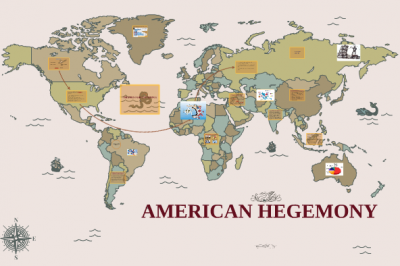In modern history, the period following World War II has been defined by the rise of the United States. Over the decades, the United States has risen as the foremost global power, exerting influence in economic, military, geopolitical, and cultural realms. Despite the emergence of alternative power centers, a meticulous analysis reveals that the world order remains predominantly unipolar. The United States is firmly positioned as the fulcrum.
Post-WWII Rise of the United States
In the wake of World War II, the United States experienced an unprecedented rise in economic, military, and technological power. Founding institutions like the International Monetary Fund (IMF), the World Bank, and the North Atlantic Treaty Organization (NATO) solidified American dominance globally. The ideological rivalry with the Soviet Union throughout the Cold War further reinforced America’s role as the foremost champion of democratic ideals and liberty.
The United States commands the global economic landscape, boasting a nominal Gross Domestic Product (GDP) estimated at $27.97 trillion in 2024. This staggering economic prowess is reinforced by a defense budget surpassing $1.60 trillion, outstripping the combined military expenditures of numerous leading nations. This substantial financial strength reinforces its military might and cements its position as a key player in global affairs.
The United States’ influence transcends numerical measures, penetrating strategic sectors and pioneering industries. Icons of technological advancement like Apple, Google, and Microsoft exemplify American innovation, shaping worldwide trends and propelling economic expansion. Furthermore, the United States spearheads global research and development (R&D) investment, nurturing an environment ripe for revolutionary breakthroughs and technological progress.
Also Read: Analyzing Pakistan’s Structural Issues: A Case Study
The United States’s military is unrivaled, as underscored by an extensive network of military installations spanning nearly 750 bases across 80 countries. This global footprint grants the U.S. unparalleled power projection capabilities, enabling it to respond to emerging threats and safeguard its national interests swiftly. The commitment to Research and Development (R&D) further reinforces America’s military superiority, ensuring it remains at the forefront of technological innovation in defense.
The United States Armed Forces dominate with cutting-edge equipment, advanced weaponry, and highly trained personnel. It is securing battlefield superiority and extending global security influence through strategic alliances.
The United States’ membership in prestigious international organizations like the U.N., G20, QUAD, and AUKUS highlights its prominent global position. These memberships afford the U.S. a platform to assert its interests, influence decision-making processes, and shape international norms and policies.
Furthermore, the United States maintains a robust network of alliances and partnerships spanning continents and encompassing both traditional and emerging powers. These alliances serve as force multipliers, enhancing U.S. geopolitical influence and amplifying its capacity to address shared challenges, ranging from security threats to economic vulnerabilities.
Cultural exchange initiatives such as the United Global Reach and Academic Diplomacy (UGRAD) further amplify. America’s cultural influence fosters connections and builds bridges between nations. The widespread dissemination of the English language as a lingua franca. It reinforces American cultural hegemony, facilitating communication, collaboration, and connectivity on a global scale.
The predominance of the United States on the global stage has been instrumental in fostering stability and peace. This is a stark departure from the tumultuous dynamics of past eras characterized by bipolar and multipolar configurations. In the current unipolar world order, the a clear hierarchy of power. It enables swift and decisive action to uphold stability and address emerging challenges.
This stability is further reinforced by the deepening economic interdependence among nations. The interconnectedness of economies encourages cooperation and dialogue as countries recognize the mutual benefits of trade and collaboration. By fostering economic ties, the United States helps mitigate the likelihood of significant conflicts. Nations have a vested interest in preserving stability to safeguard their financial interests.
Hegemonic Stability Theory
The Hegemonic stability theory provides valuable insights into the mechanisms through which a dominant power fosters order in the international system. According to this theory, the presence of a preeminent entity encourages openness to trade and investment and the establishment of institutional frameworks that facilitate cooperation and conflict resolution. The United States’ global primacy encourages other nations to pursue peaceful interactions and uphold international norms and agreements.
Upon thorough examination, it is evident that the prevailing global order maintains a predominantly unipolar structure, with the United States firmly entrenched as the primary global power. Despite the emergence, the United States continues to maintain a significant lead across critical indicators of power. This underscores the enduring nature of American hegemony, which will persist as the principal force shaping global affairs in the future.
The evidence continued that the unipolar world order is persuasive and multifaceted. Across economic, military, geopolitical, and cultural domains, the United States consistently demonstrates its unparalleled influence and dominance.
Despite concerns about China’s rise, American dominance persists, with China opting for economic integration rather than aggressive expansion. Further contributing to stability in the current unipolar framework.
Conclusion
In conclusion, the world order remains predominantly unipolar, with the United States keeping its hegemonic perch across diverse domains. The stability and harmony engendered by a unipolar world order. U.S. power trend continues to affirm American control of global influence. As we navigate the complexities of the 21st century, it is evident that the United States. It will continue to wield substantial influence, charting the course of the global landscape for generations.

International Relations student with solid academic basis in Diplomatic Relations, International Law and Intercultural Communication. Her writings focus on international relations, feminism and current trends.







